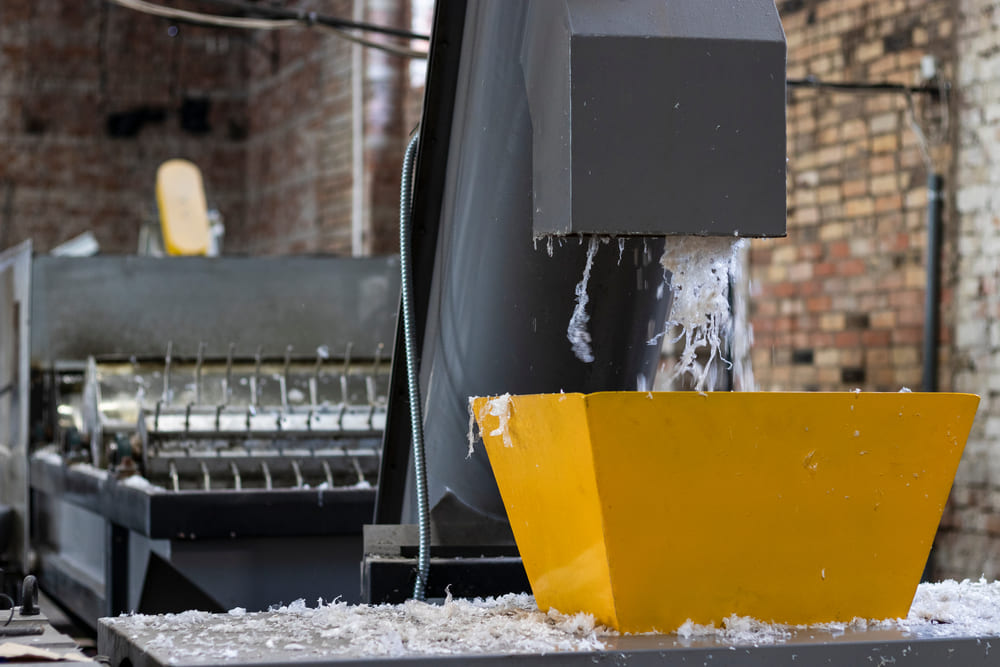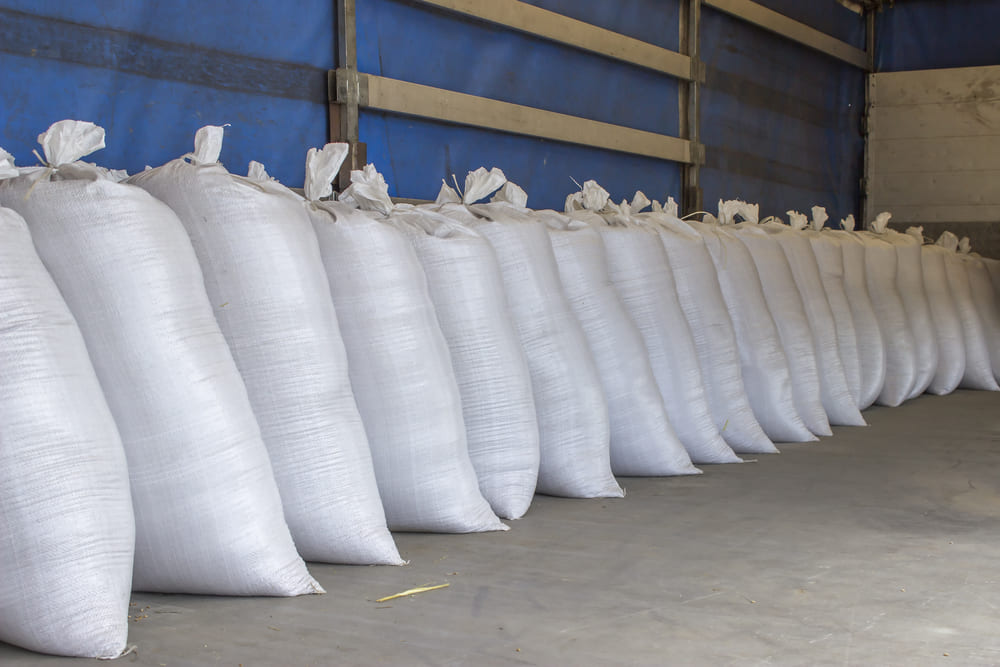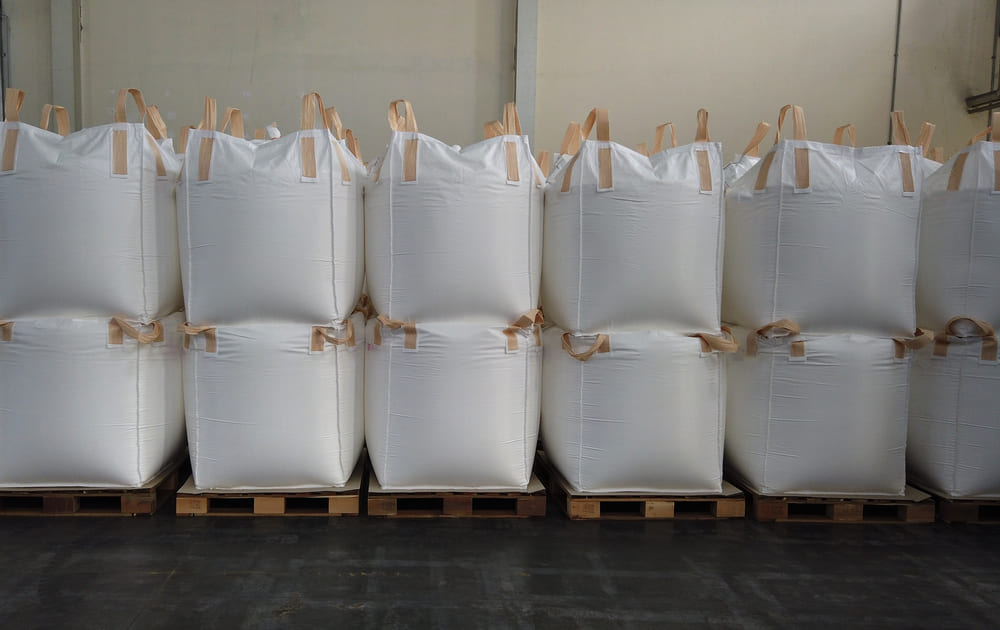News
How to Recycle Super Saks

If your company uses polypropylene bags, also known as flexible intermediate bulk containers (FIBCs), one-ton bags or bulk bags, know that iSustain can recycle your super saks. With this recycling service, you can prepare your business for minimum-recycled-content mandates, reevaluate your waste stream, and improve your bottom line.
Each year over 300 million tons of plastic are produced and less than 5% is recycled. We can help you improve your plastic recycling rates through the recycling of super saks. Super saks can be reused and should be utilized multiple times, but if they are no longer usable in your facility, we can help you recycle them into new polypropylene products. They can be recycled, even if they have an LDPE liner, as long as any residual is removed.

How does iSustain recycle super saks?
Bulk Bag Recycling (PP resin) is a multi-step process that requires very specialized equipment. Essentially, the bulk bag is chopped, washed, melted and extruded into plastic pellets. These plastic pellets are then sold to a plastic reprocessor, who will use them in a specific manufacturing process (such as woven polypropylene material or woven into fibre) to create a “new” or “recycled” plastic product. Here are the steps in our process:
- We collect your bulk bags and ready the material for the recycling center. We very often ask you to not only collect but bale your super saks to densify and make storage and transportation economical.
- We wash and shred the FIBCs using specialized shredders with sharp, industrial-grade blades to break down the fabric. Here is a great video of a typical process.
- The shredded material is separated, plastic polymer is differentiated from contaminants and sorted based on size, shape, color, and melting point.
- The plastic shred is then densified and extruded into pellets. The pre-processed plastic shred is put through an extruder, melted down at 240 degrees Celsius, and transformed into uniform beads, pellets or granules. The mixture may be strengthened through the addition of virgin polypropylene (PP) or other additives.
What can the Polypropylene from your recycled super saks make?
Most polypropylene is used in packaging (30%), followed by electrical and equipment manufacturing (13% each), then household appliances and automotive industries (10% each), and finally construction (5%). Many automotive parts, nursery plastic pots, and plastic pallets are made from recycled polypropylene from the super saks iSustain recycles today. Super saks, once processed and pelletized, can be used in numerous applications and give new life to this recycled resin.
Let iSustain Recycle Your Super Saks.
There’s a reason businesses stock up on super sak bags. They’re versatile, reliable storage containers that store massive loads without breaking a sweat. When you partner with us to streamline your recycling and waste management, iSustain’s recycling solutions for super saks are included in that.
Our team can recycle these bulk bags from your facility, cleaning and repurposing polypropylene for new use. We’ll find a new life for these plastics together while saving you money in the process. Contact us for more information to start your recycling program.

